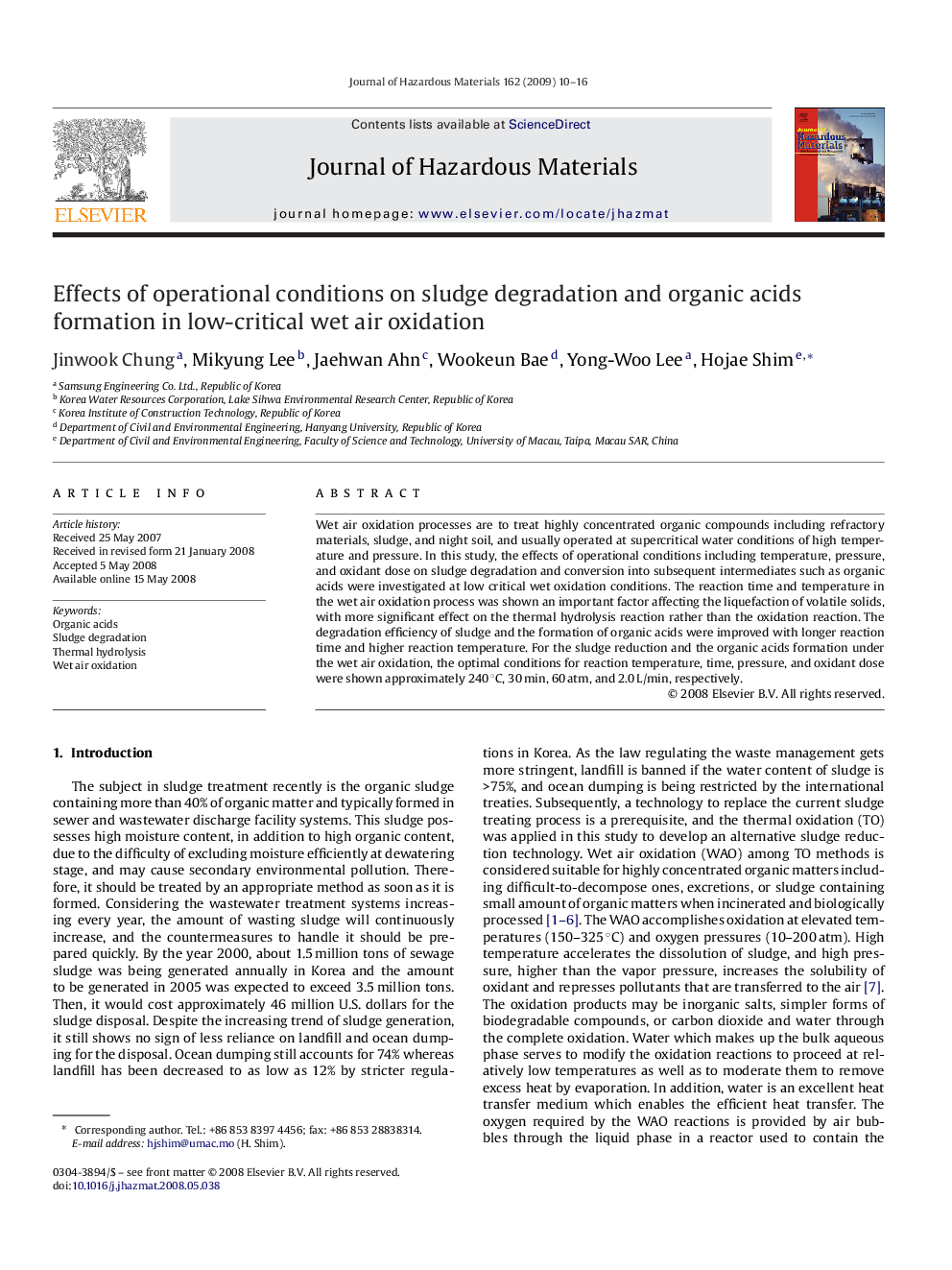| Article ID | Journal | Published Year | Pages | File Type |
|---|---|---|---|---|
| 582540 | Journal of Hazardous Materials | 2009 | 7 Pages |
Abstract
Wet air oxidation processes are to treat highly concentrated organic compounds including refractory materials, sludge, and night soil, and usually operated at supercritical water conditions of high temperature and pressure. In this study, the effects of operational conditions including temperature, pressure, and oxidant dose on sludge degradation and conversion into subsequent intermediates such as organic acids were investigated at low critical wet oxidation conditions. The reaction time and temperature in the wet air oxidation process was shown an important factor affecting the liquefaction of volatile solids, with more significant effect on the thermal hydrolysis reaction rather than the oxidation reaction. The degradation efficiency of sludge and the formation of organic acids were improved with longer reaction time and higher reaction temperature. For the sludge reduction and the organic acids formation under the wet air oxidation, the optimal conditions for reaction temperature, time, pressure, and oxidant dose were shown approximately 240 °C, 30 min, 60 atm, and 2.0 L/min, respectively.
Related Topics
Physical Sciences and Engineering
Chemical Engineering
Chemical Health and Safety
Authors
Jinwook Chung, Mikyung Lee, Jaehwan Ahn, Wookeun Bae, Yong-Woo Lee, Hojae Shim,
